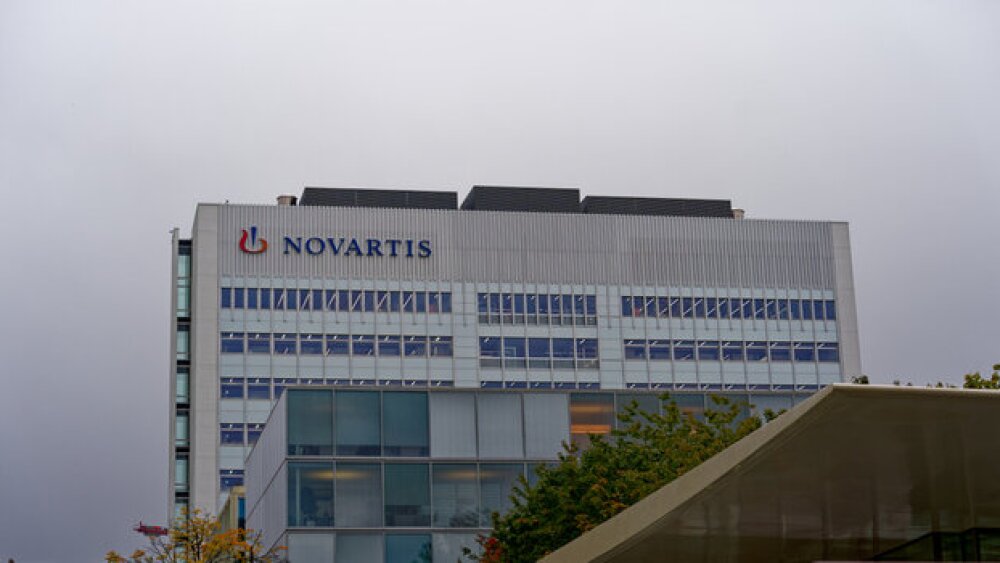Following a Phase II review, Novartis has cut the development of a gene therapy candidate for geographic atrophy. In June, the company sold a dry eye disease drug to Bauch + Lomb for $1.75 billion.
Pictured: Novartis campus in Switzerland/iStock, Michael Derrer Fuchs
Novartis is discontinuing the development of GT005, a mid-stage investigational gene therapy being developed for geographic atrophy secondary to dry age-related macular degeneration.
The announcement was made Monday by Syncona Investment Management Limited, founder and former majority investor in Gyroscope Therapeutics, which originally developed GT005. Novartis acquired Gyroscope in December 2021 for $800 million upfront with the potential of up to $700 million in milestone payments.
“We are naturally disappointed for patients following the decision to discontinue GT005, but we respect Novartis’ decision,” Syncona CEO Chris Hollowood said in a statement, adding that the firm will continue to build and maintain its portfolio of companies to drive strong value for its shareholders and “make a difference to the lives of patients with devastating diseases.”
According to Syncona’s announcement, Novartis made the cut after an Independent Data Monitoring Committee reviewed available data from the lead Phase II HORIZON study and deemed that GT005’s performance “did not support continuation of the development program.”
As a result of GT005’s discontinuation, Syncona will write off approximately $62 million in milestone payments from Gyroscope that it would have received as part of the 2021 acquisition agreement.
Novartis’ decision to discontinue the development of GT005 in geographic atrophy (GA), an advanced form of age-related macular degeneration, comes two weeks after it similarly dropped the Xoma-partnered anti-TGFβ antibody NIS793. The candidate was being assessed as a potential first-line therapy for pancreatic ductal carcinoma, for which Novartis was running a Phase III trial that combined NIS793 with gemcitabine and nab-paclitaxel.
Though enrollment into all active clinical trials of NIS793 have stopped, Novartis will still collect data from these studies once they have concluded. Xoma will regain rights to NIS793, which will remain an investigational compound.
A month earlier, in July 2023, disappointing clinical data also caused Novartis to divest two other assets. The first was an anti-TIGIT checkpoint inhibitor being developed with BeiGene for non-small cell lung cancer. A week later, Novartis also abandoned the investigational obesity drug MBL949 after “lack of efficacy” in a Phase II trial.
MBL949 works via the GFD-15 pathway, which Novartis CEO Vas Narasimhan had previously touted as a “unique mechanism of action.”
In June 2023, Novartis also sold its dry eye disease drug Xiidra (lifitegrast ophthalmic solution) to Bauch + Lomb for $1.75 billion upfront, along with up to $750 million in potential milestones. Xiidra is the first FDA-approved prescription drug for dry eye disease and made $487 million in earnings in 2022.
Tristan Manalac is an independent science writer based in Metro Manila, Philippines. He can be reached at tristan@tristanmanalac.com or tristan.manalac@biospace.com.






